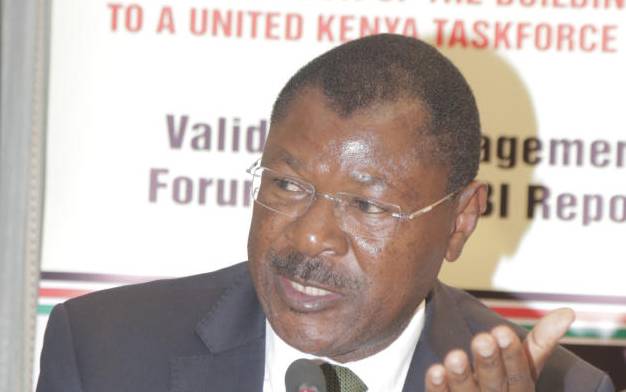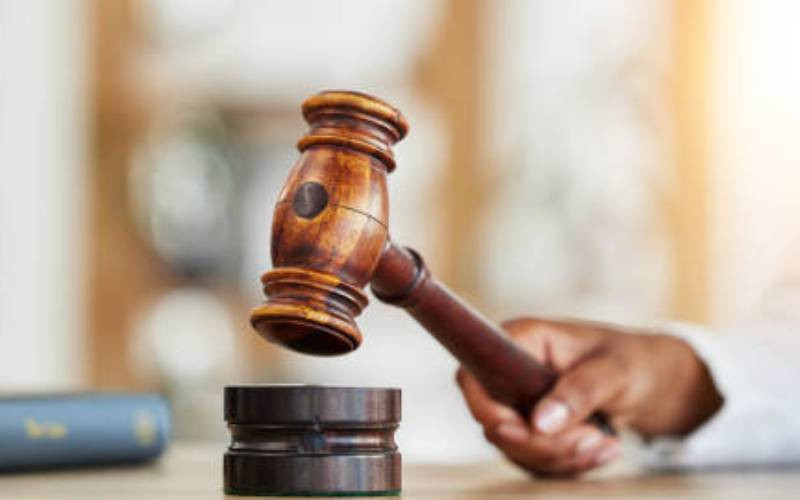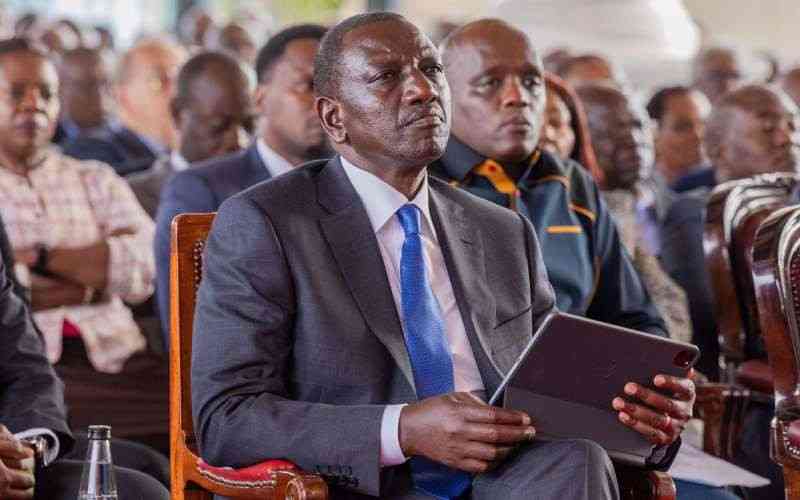
Bungoma Senator Moses Wetang’ula (pictured) has urged the Government to reveal the identities of the patients confirmed to be having the coronavirus.
In his statement seen by Standard Digital, Senator Wetang’ula stated that revealing the names of COVID-19 patients will help the Ministry of Health to trace the contact persons for quarantine hence making it easier to contain the spread of the virus.
“I encourage the government not to conceal the identities of our compatriots who have been found to be Covid-19 positive,” he noted in a statement.
“Making the identities public will help those who have associated with them for the past one to two weeks to quickly take measures and go for diagnosis to find out whether they have also contracted the virus or not.”
Bungoma legislator appealed to the Government to borrow a leaf from other countries such as United Kingdom, Brazil and Iran which he said had not tried to conceal the identities of the persons who have tested positive for the virus.
“Several celebrity personalities including Arsenal manager and 2020 Japan Olympics Chairperson have also gone public after tests,” he stated.
According to him, the virus is not associated with any stigma, thus, people will willingly come forward with their status and help in curbing the transmission.
He did not only urge the Executive to avoid concealing the identity of the patients but also went ahead to challenge his colleagues in the Parliament and the Senate to come public should they test positive for COVID-19 at some point.
He said “…if I was to be diagnosed positive, I would not wish my identity to be concealed so that I can help those I associate with to come out and get diagnosed.”
“In the same manner I encourage my colleagues who might have been tested positive to agree and come out in the open as a way of eliminating infections.”
Wetang’ula’s plea comes after a number of famous people around the world took the COVID-19 tests with most of them making their results public.
On March 15, US President Donald Trump’s coronavirus test was made public after the White House announced that Mr Trump was symptom-free and had not contracted the coronavirus.
"Last night after an in-depth discussion with the President regarding COVID-19 testing, he elected to proceed…One week after having dinner with the Brazilian delegation in Mar-a-Lago, the President remains symptom-free,” read a statement from President Trump’s press secretary Stephanie Grisham.
His test was done after he had interacted with a delegation from Brazil of which one of the members later tested positive.
Stay informed. Subscribe to our newsletter
Disclosed cases
In Britain, Arsenal FC manager Mikel Arteta and Chelsea FC player Callum Hudson-Odoi all had their results made after they tested positive for COVID-19.
Last week, Iran’s Vice President Eshaq Jahangiri and two cabinet ministers Ali Asghar Mounesan, (cultural heritage, handicrafts and tourism) and Reza Rahmani (industry, mines and business) all tested positive for the virus and their results revealed.
Earlier this week, British film star Idris Elba also posted a short video on his Twitter and Instagram walls disclosing how he tested positive for coronavirus saying that he was self-quarantining to protect his close family members.
Health Cabinet Secretary Mutahi Kagwe earlier in the day revealed that Kenya had confirmed three more cases taking the number of COVID-19 patients to seven from four.
However, the Government has not given expansive details about the patients. In most cases, only their travel history, age and location are provided to the media.
What the law says
According to the Health Act 2017, a person’s health information is confidential and is protected by law as such.
Section 11 (1) under Confidentiality states: “Information concerning a user, including information relating to his or her health status, treatment or stay in a health facility is confidential except where such information is disclosed under an order of the court or informed consent for health research and policy planning purposes.”
However, the law only gives three conditions under which the health details of the coronavirus patients would be revealed as prescribed in section 11 (2) of the Act.
They include: When a person gives consent in writing, when court orders for disclosure or there is another law allowing it, and when non-disclosure of such information poses a serious health threat to the country.
 The Standard Group Plc is a
multi-media organization with investments in media platforms spanning newspaper
print operations, television, radio broadcasting, digital and online services. The
Standard Group is recognized as a leading multi-media house in Kenya with a key
influence in matters of national and international interest.
The Standard Group Plc is a
multi-media organization with investments in media platforms spanning newspaper
print operations, television, radio broadcasting, digital and online services. The
Standard Group is recognized as a leading multi-media house in Kenya with a key
influence in matters of national and international interest.
 The Standard Group Plc is a
multi-media organization with investments in media platforms spanning newspaper
print operations, television, radio broadcasting, digital and online services. The
Standard Group is recognized as a leading multi-media house in Kenya with a key
influence in matters of national and international interest.
The Standard Group Plc is a
multi-media organization with investments in media platforms spanning newspaper
print operations, television, radio broadcasting, digital and online services. The
Standard Group is recognized as a leading multi-media house in Kenya with a key
influence in matters of national and international interest.










